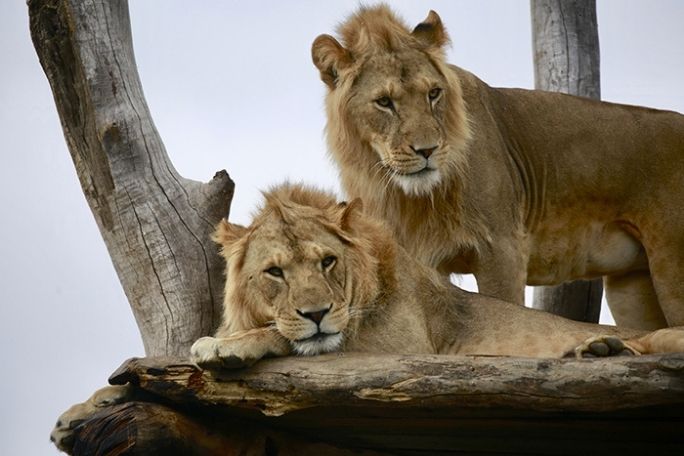Lesson summary
In this lesson, students explore big issues relating to animal welfare, ethics and zoos. They begin by investigating their own thoughts and feelings about zoos before conducting an analysis of a text dealing with some of the difficult and divergent views people have about zoos. Students will then explore what their local zoo is doing in terms of education and conservation. Finally, students will bring together all the ideas presented in this lesson and engage in a class debate.
Learning intentions:
Students will...
- Students understand that there are a range of ethical issues involved with zoos, and that these issues can be very divisive
- Students understand that having a debate around a difficult or divisive issue can help to find common ground or consensus
Success criteria:
Students can...
- read/view and analyse texts
- participate in class discussions
- participate in a debate
- work independently and in groups
- apply critical thinking skills to a range of divisive topics
- respectfully listen to and express ideas about divisive issues
Lesson guides and printables
Lesson details
Curriculum mapping
Australian curriculum content descriptions:
Year 9 Science:
- Ecosystems consist of communities of interdependent organisms and abiotic components of the environment; matter and energy flow through these systems (ACSSU176)
- People use scientific knowledge to evaluate whether they accept claims, explanations or predictions, and advances in science can affect people’s lives, including generating new career opportunities (ACSHE160)
Year 10 Science:
- The theory of evolution by natural selection explains the diversity of living things and is supported by a range of scientific evidence (ACSSU185)
- People use scientific knowledge to evaluate whether they accept claims, explanations or predictions, and advances in science can affect people’s lives, including generating new career opportunities (ACSHE194)
Syllabus outcomes: SC5-14LW, SC5-13ES
General capabilities: Critical and creative thinking, Ethical understanding
Cross-curriculum priority: Sustainability OI.2, OI.7, OI.9
Relevant parts of Year 9 Science achievement standards: Students analyse how biological systems function and respond to external changes.
Relevant parts of Year 10 Science achievement standards: Students explain the processes that underpin heredity and evolution.
Unit of work: Fighting Extinction – Secondary
Time required: 120 mins
Level of teacher scaffolding: Medium – lead students in research activities and facilitate discussions and debate
Resources required
- Student Worksheets – one copy per student
- A device capable of presenting a video to the class
- Debate Guidelines
- Year 9 Question Sheet
- Year 10 Question Sheet
- Conservation Priorities Factsheet
- Class set of the following articles:
- Article 1 – Zoos Are Not Prisons. They Improve the Lives of Animals
- Article 2 – Ethics at the Zoo: The Case of Marius the Giraffe
- Article 3 – The Good, the Bad, and the Ugly of Ethics in Zoos
Skills
- Collaboration
- Communication
- Creativity
- Critical thinking
- Ethical understanding
- Empathy
- Problem solving
- Social skills
Additional info
This lesson has been developed in partnership with Zoos Victoria. Zoos Victoria is a zoo-based conservation organisation whose mission is to fight extinction and support Victorians to be the world’s most wildlife friendly community through being caring, informed and active. Zoos Victoria operate three zoos: Werribee Open Range Zoo, Melbourne Zoo and Healesville Sanctuary. Click here to find out more about Zoos Victoria and their work on fighting extinction.


Welcome back!
Don't have an account yet?
Log in with:
By signing up to Cool.org you consent and agree to Cool's privacy policy to
store, manage and process your personal information. To read more, please see
our privacy policy here(Opens in new tab).
Create your free Cool.org account.
Many of our resources are free, with an option to upgrade to Cool+ for premium content.
Already have an account?
Sign up with:
By signing up to Cool.org you consent and agree to Cool's privacy policy to
store, manage and process your personal information. To read more, please see
our privacy policy here(Opens in new tab).